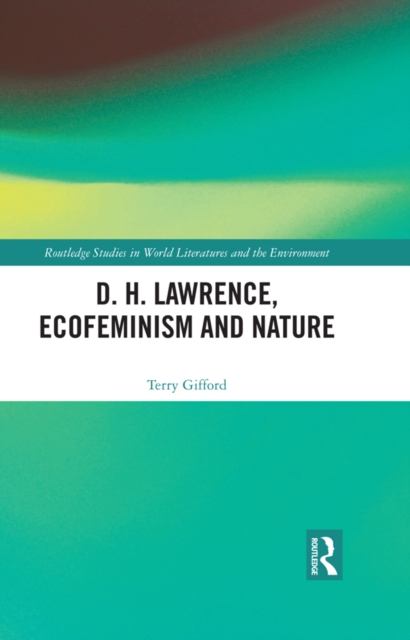
D. H. Lawrence, Ecofeminism and Nature PDF
by Terry Gifford
Part of the Routledge Studies in World Literatures and the Environment series
Description
Shortlisted for the ASLE-UKI Prize for Best Academic Monograph
This is the first ecocritical book on the works of D. H. Lawrence and also the first to consider the links between nature and gender in the poetry and the novels. In his search for a balanced relationship between male and female characters, what role does nature play in the challenges Lawrence offers his readers? How far are the anxieties of his characters in negotiating relationships that might threaten their sense of self derived from the same source as their anxieties about engaging with the Other in nature? Indeed, might Lawrence's metaphors drawn from nature actually be the causes of human actions in The Rainbow, for example? The originality of Lawrence's poetic and narrative strategies for challenging social attitudes towards both nature and gender can be revealed by new approaches offered by ecocritical theory and ecofeminist readings of his books. This book explores ecocritical notions to frame its ecofeminist readings, from the difference between the 'Other' and 'otherness' in The White Peacock and Lady Chatterley's Lover, 'anotherness' in the poetry of Birds, Beasts and Flowers, psychogeography in Sea and Sardinia, emergent ecofeminism in Sons and Lovers, land and gender in The Boy in the Bush, gender dialogics in Kangaroo, human animality in Women in Love, trees as tests in Aaron's Rod, to 'radical animism' in The Plumed Serpent. Finally, three late tales provide a reassessment of ecofeminist insights into Lawrence's work for readers in the present context of the Anthropocene.
Information
-
Download - Immediately Available
- Format:PDF
- Pages:212 pages
- Publisher:Taylor & Francis
- Publication Date:30/09/2022
- Category:
- ISBN:9781000649543
Other Formats
- Paperback / softback from £36.59
- Hardback from £135.00
- EPUB from £35.99
Information
-
Download - Immediately Available
- Format:PDF
- Pages:212 pages
- Publisher:Taylor & Francis
- Publication Date:30/09/2022
- Category:
- ISBN:9781000649543










